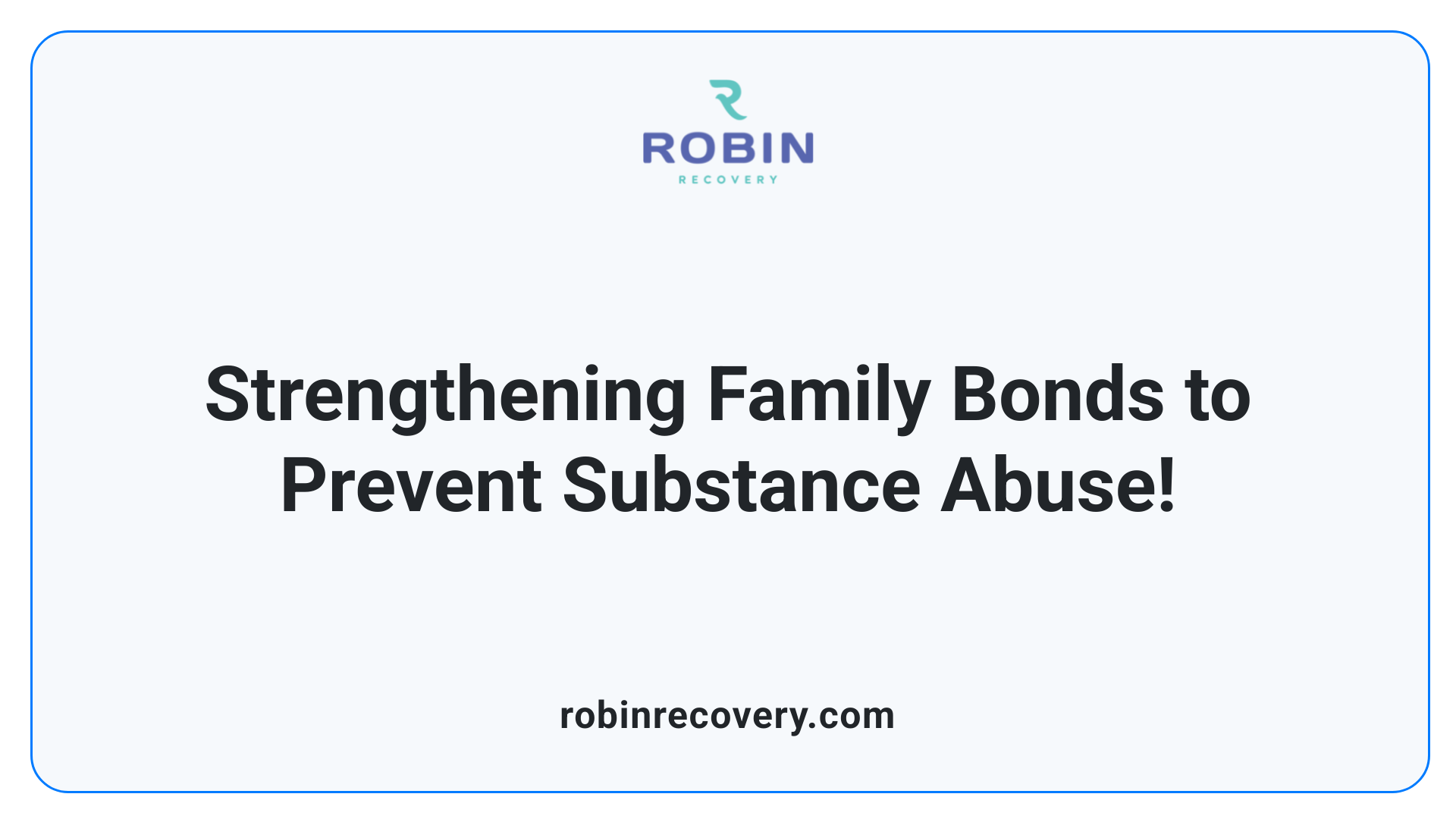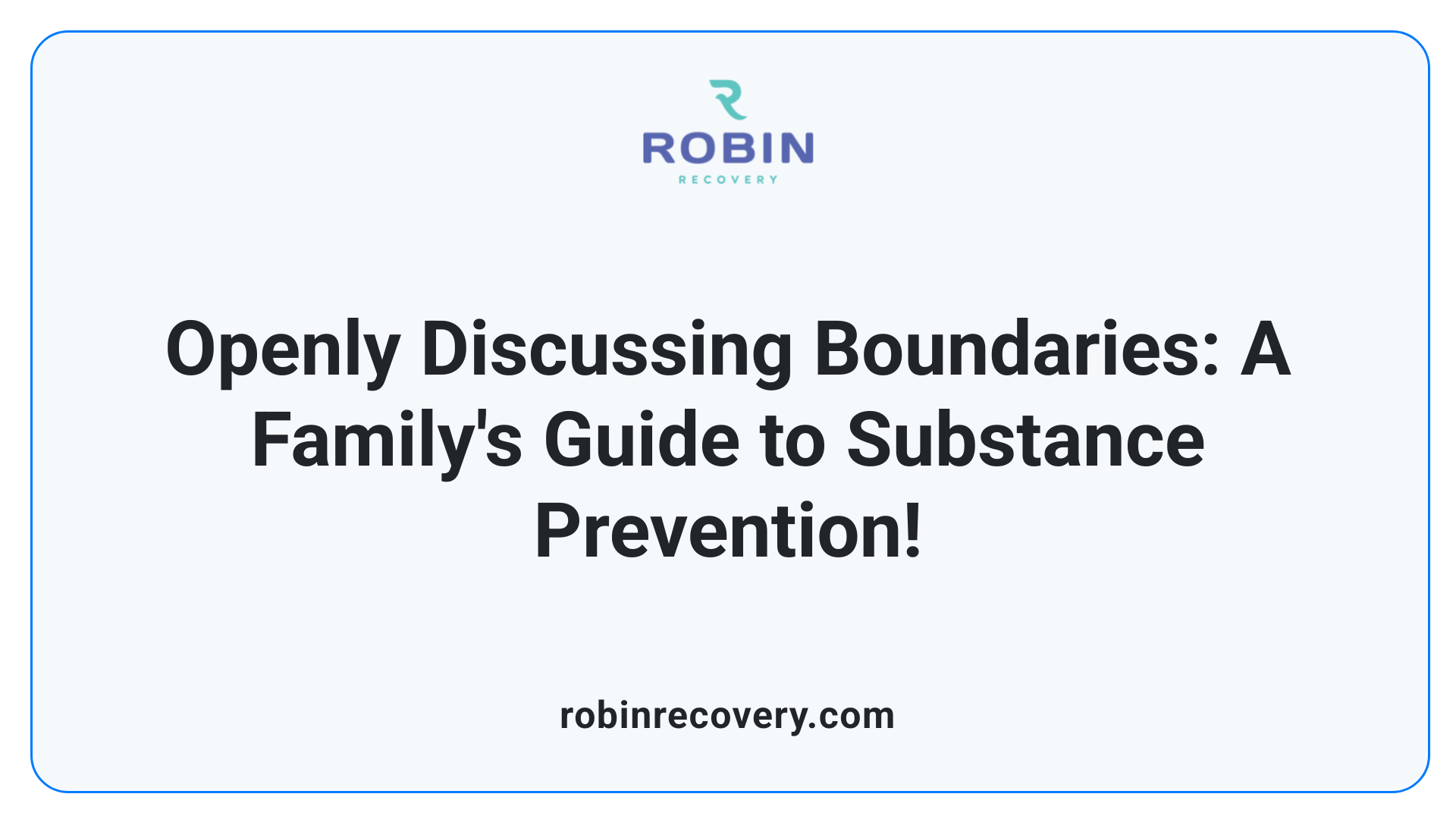10 Ways on How to Avoid Drug Addiction

Understanding Drug Addiction and Prevention
Drug addiction is a pervasive issue that affects millions worldwide, with potentially devastating consequences. By understanding the root causes of addiction and actively engaging in prevention strategies, individuals can greatly reduce their risk of developing substance abuse disorders. This article provides ten effective ways to prevent drug addiction, offering practical advice for individuals, families, and communities.
Key Facts on Substance Abuse Prevention
- Strong relationships provide support, reducing the likelihood of substance abuse.
- Peer pressure is a major factor in teen drug use; positive influences help resist it.
- Addressing mental health issues is critical to preventing addiction; self-medication through drugs is common.
- Establishing clear family rules and communication fosters a supportive environment for teens.
- Engaging in healthy activities reduces boredom and increases resilience against drug use.
- Education about the risks of substance abuse empowers youth to make informed choices.
- Personal risk factors, such as mental health history, significantly influence addiction potential.
- Adopting healthy coping mechanisms like exercise or mindfulness counters stress-induced drug use.
- Seeking professional support enhances recovery outcomes and addresses underlying issues.
- Informed medication management prevents prescription drug misuse and promotes responsible use.
1. Develop Strong Family and Social Connections

Importance of Healthy Relationships
Fostering healthy relationships is crucial in preventing substance abuse. When individuals have strong family ties and supportive friendships, they are better equipped to resist the temptations of drug use. Open communication within families provides the necessary emotional support to manage life's challenges without resorting to substances.
Avoiding Peer Pressure
Peer pressure plays a significant role in the onset of substance abuse, especially among teens. Encouraging ways to resist peer influence can significantly diminish the likelihood of experimenting with drugs. It's vital for young individuals to be surrounded by positive influences who uphold a drug-free lifestyle, fostering resilience against unhealthy choices. Additionally, families can establish clear rules regarding drug use, ensuring a supportive environment that promotes healthy decision-making.
2. Emphasize Self-Care and Mental Health

Impact of mental health on addiction
Mental health issues, such as anxiety and depression, are often intertwined with substance abuse. Individuals may turn to drugs or alcohol as a means of self-medication to cope with emotional pain. Addressing these underlying mental health conditions is essential for preventing addiction.
Recognizing personal triggers related to mental health can significantly reduce the likelihood of substance abuse. Seeking professional help not only improves mental well-being but also provides individuals with coping strategies to manage stress without resorting to substances.
Self-care strategies
Practicing self-care enhances overall emotional health and reduces reliance on drugs or alcohol. Here are several key self-care strategies:
- Engage in physical activities: Exercise can relieve stress and improve mood.
- Prioritize relaxation: Activities like yoga or meditation promote mindfulness and emotional regulation.
- Maintain social connections: Surrounding yourself with supportive friends and family mitigates feelings of loneliness.
- Set personal goals: Establishing achievable, positive goals reinforces a sense of purpose and helps to steer clear of negative influences.
- Educate yourself: Understanding how substance use can impact mental health empowers you to make informed choices against substance experimentation.
Remember, incorporating self-care into your daily routine can significantly enhance mental health and protect against the risk of addiction.
3. Establish Clear Boundaries and Communication

Setting Family Rules on Drug Use
Establishing clear family rules regarding substance use is essential for prevention. Families should engage in discussions to define expectations around drug use, ensuring that all members understand the risks associated with substance abuse. Setting these boundaries not only helps guide teenagers but also fosters a safe environment where open conversations can occur. Parents are encouraged to monitor prescription medications closely to prevent misuse and to remind teens of the legal consequences tied to drug use.
Importance of Open Dialogue
Maintaining open lines of communication within the family plays a vital role in substance abuse prevention. Having regular discussions about drug use helps dispel myths and clarifies misconceptions. Parents should strive to create a comfortable space for teens to express their thoughts and concerns, guiding them toward making informed choices. When families emphasize communication rather than enforcement, they strengthen relationships and encourage honesty, making it less likely that teens will resort to drugs out of rebellion or secrecy.
4. Engage in Healthy, Fulfilling Activities

Role of Sports and Hobbies
Engaging in sports and hobbies plays a vital role in creating a healthy lifestyle. Activities such as team sports, yoga, or even creative pursuits like painting provide not only enjoyment but also a constructive way to manage stress. These activities foster a sense of achievement and belonging, reducing feelings of loneliness that can often lead to substance use.
Reducing Drug Use Temptation
When individuals immerse themselves in meaningful and fulfilling activities, they are naturally less inclined to seek out drugs. Healthy hobbies can fill a void that might otherwise lead to boredom and experimentation with substances. Early involvement in recreational pursuits not only enhances personal health but also strengthens resilience against peer pressure, making it easier to say "no" to drug use in various social situations.
5. Stay Informed and Educate Others on Substance Dangers

Understanding Substance Abuse Education
Educational programs play a vital role in preventing substance abuse, especially among youth. By informing children and teens about the risks and effects of drug use, these programs help to combat misconceptions and curiosity that often lead to experimentation. Knowledge is power—children who understand the potential consequences of substance misuse, such as addiction and health complications, are less likely to engage in risky behaviors.
Training for Parents and Guardians
Education doesn’t stop with youth; parents and guardians should also be informed. Training programs can equip families with communication skills to effectively discuss substance use, thereby fostering open dialogues in a non-confrontational manner. This encourages teenagers to express concerns and ask questions, which can significantly reduce the chances of them succumbing to peer pressure.
Creating a Supportive Environment
For educational initiatives to be impactful, they should involve the community. Schools, local organizations, and health services can collaboratively design programs that address substance abuse. By understanding the harmful effects of drugs and promoting healthy lifestyle choices, communities can create an environment that discourages substance use and supports prevention efforts.
Topic Description Importance Understanding Risks Knowing the consequences and signs of drug misuse Reduces experimentation and encourages informed choices Engaging Parents Training parents to communicate effectively about substance dangers Creates a supportive home environment Community Involvement Collaborative outreach and prevention education in schools and local areas Strengthens collective responsibility towards youth
6. Understand Personal and Family Risk Factors
Identifying Personal Risk
Understanding personal risk factors associated with substance abuse is essential for prevention. Individuals should be aware of their emotional health, environmental influences, and behaviors that may elevate their chances of developing addiction. Key personal risk factors include:
- Mental Health Issues: Anxiety, depression, or trauma can lead individuals to use substances as a form of self-medication.
- Impulsive Behavior: Those with impulsive tendencies may engage in drug use without fully considering the consequences.
- Low Self-Esteem: Feelings of inadequacy can drive individuals to seek validation or escape through substance use.
Family History of Addiction
Family history plays a significant role in an individual's risk of substance abuse. If addiction runs in the family, it heightens the chance of developing similar behaviors due to both genetic and environmental factors. Notable aspects include:
- Genetic Predisposition: Certain genes may influence an individual's response to drugs, increasing the likelihood of addiction.
- Environmental Influences: Growing up in a household where substance abuse is prevalent can normalize these behaviors and tempt individuals to experiment with drugs themselves.
Being aware of these factors allows individuals to take proactive steps in avoiding substance abuse and fostering healthier lifestyles.
7. Adopt Healthy Coping Mechanisms
Managing Stress Effectively
Managing stress is crucial for preventing substance abuse. Individuals can adopt various techniques to cope with stress, including:
- Exercise: Engaging in physical activities like running, swimming, or team sports can significantly reduce stress levels while boosting mood.
- Healthy Eating: A well-balanced diet can improve overall well-being, making individuals less susceptible to emotional distress and the temptation to rely on drugs for comfort.
- Self-Care: Setting aside time for personal enjoyment and relaxation activities, such as reading or hobbies, can provide necessary mental breaks and emotional releases.
Mindfulness and Meditation
Practicing mindfulness and meditation can be powerful tools for emotional regulation. These techniques help individuals focus on the present moment, which can alleviate stress and reduce cravings for substances. Incorporating activities such as yoga, deep breathing, or guided meditations into daily routines can foster resilience against the challenges of life.
By integrating these healthy coping mechanisms, individuals can build a strong foundation for preventing substance abuse.
8. Seek Professional Support When Needed
Role of therapy and counseling
Seeking professional support plays a crucial role in addressing substance abuse. Therapy and counseling provide individuals with the tools necessary to cope with underlying mental health issues like anxiety and depression, which often co-occur with addiction. Trained professionals can offer tailored approaches, helping clients learn coping strategies to avoid drugs and alcohol, making recovery more achievable.
Early intervention benefits
Early intervention can significantly enhance recovery outcomes. By addressing potential substance abuse early on, individuals gain insights into their behaviors and triggers. This proactive support fosters resilience against future challenges, reducing the risk of developing more severe addiction issues. Furthermore, it highlights the importance of engaging in open dialogues about substance use, allowing individuals to feel supported and understood during their journey to recovery.
9. Maintain a Balanced Lifestyle
Stress Management Techniques
Managing stress is essential for reducing the potential for substance abuse. Engaging in activities like yoga, meditation, and regular exercise can significantly lower stress levels. These practices not only reduce anxiety but help in maintaining emotional balance, leading individuals away from unhealthy coping mechanisms.
Setting Personal Goals
Setting personal goals is equally important. Creating small, achievable milestones fosters a sense of accomplishment and motivation, making it less likely for individuals to turn to drugs for relief. Goals may include academic targets, health aspirations, or recreational activities, providing focus and fulfillment in life, thus steering clear of substance use.
10. Be Aware of Prescription Drug Policies
Taking Medications as Prescribed
Taking medications strictly as prescribed by a healthcare professional is essential for safeguarding against misuse. Patients should adhere to dosage and frequency guidelines and consult their doctor before making any changes. This practice not only promotes healing but also minimizes the risk of developing dependence on prescription drugs.
Risks of Prescription Drug Misuse
Misuse of prescription medications can lead to significant health consequences. Common risks include addiction, overdose, and the potential transition to illegal drugs. Awareness of these risks emphasizes the importance of responsible medication management. In fact, many individuals who develop substance use disorders often start with prescription drugs, making it crucial to foster a culture of cautious use within families and communities.
Topic Details Importance Taking Medications as Prescribed Follow healthcare advice for effective use. Prevents misuse and promotes healing. Risks of Prescription Drug Misuse Misuse can lead to addiction and severe health issues. Encourages safe medication practices.
How Teens Can Effectively Say No to Drugs
How can teenagers say no to drugs effectively?
Teenagers can effectively say no to drugs by employing clear and assertive communication. This involves responding in a firm voice and stating their refusal directly. For instance, saying, "I don't want to drink or use drugs," is a straightforward way to communicate their choice.
Providing a reason can also reinforce their decision; they might say, "It's bad for my health" or "I want to focus on my future." This highlights their awareness of the risks involved in substance use. Additionally, teens can make their boundaries known by requesting not to be asked again, strengthening their resolve.
Understanding the risks associated with substance use, such as potential addiction issues, can further empower teens to stand firm in their choices. Surrounding themselves with positive influences and practicing refusal skills in safe settings can prepare them for real-life situations.
Top Five Ways to Prevent Substance Abuse
What Are the Top Five Ways to Prevent Substance Abuse?
Preventing substance abuse starts with understanding its roots, which can include recreational drug use and the misuse of prescription medications. Here are the five top strategies:
- Understand the Development of Substance Abuse
Recognizing that substance abuse often originates from seeking intoxication or self-medicating for mental health issues is essential. This awareness promotes proactive measures against drug use. - Avoid Temptation and Peer Pressure
Surround yourself with supportive friends who respect your decision to stay drug-free. Fostering healthy relationships and developing resilience against peer pressure can significantly reduce substance abuse risk. - Seek Professional Help for Mental Health Issues
Addressing mental health conditions like anxiety or depression is vital, as they are often linked to substance abuse. Engaging with therapists can equip individuals with coping strategies that do not involve substances. - Examine Personal Risk Factors
Awareness of one’s own family history of addiction or other personal risk factors is crucial. This understanding can guide individuals in taking preventive actions against drug use. - Maintain a Balanced Life
Stress management and setting achievable goals can significantly reduce the likelihood of turning to substances for relief. Engaging in hobbies, sports, or mindfulness activities can enhance overall well-being and provide healthy outlets for stress.
Strategies to Stay Drug-Free
What strategies can help someone stay drug-free?
To stay drug-free, implementing effective strategies is essential. Here are some key approaches:
- Set SMART Goals: Establish specific, measurable, achievable, realistic, and timely goals to maintain focus and motivation in recovery.
- Positive Self-Talk: Encourage a mindset shift with affirmations and celebrating achievements, boosting self-esteem and motivation.
- Build Healthy Habits: Engage in regular exercise and meaningful activities, which can rewire the brain and reduce stress while improving overall mental health.
Avoiding negative influences
- Establish a Support System: Maintain connections with trusted friends and family who promote sobriety and provide emotional support.
- Cut Toxic Relationships: Identify and distance yourself from individuals who may tempt or pressure you to consider drug use.
- Prepare for Triggers: Prior to social engagements, create plans to navigate potential risks, focusing on strategies to maintain sobriety.
By adopting these strategies, individuals can significantly decrease their chances of relapse and promote a drug-free lifestyle.
Managing Drug Addiction Despite Triggers
Can drug addiction be prevented or managed despite triggers?
Drug addiction management is a multifaceted process, requiring a deep understanding of its nature as a chronic disease. It's essential to recognize that addiction extends beyond individual behavior; it profoundly impacts the brain. Thus, effective strategies focus on raising awareness regarding personal triggers, which vary per individual, and equipping them with coping mechanisms.
An essential element in managing drug addiction is involving a robust support system. Families, schools, and community-level prevention programs have shown significant benefits in curbing substance use.
Strategies for Managing Triggers:
- Identification of Triggers: Recognizing environmental factors like social settings or specific emotions can empower individuals to navigate high-risk situations effectively.
- Healthy Coping Mechanisms: Developing stress management techniques—such as mindfulness, exercise, or engaging in hobbies—provides alternatives to substance use when faced with triggers.
- Professional Support: Seeking help from healthcare professionals can offer tailored strategies to address addiction recovery and trigger management.
Taking Proactive Steps Toward a Drug-Free Life
Prevention of drug addiction requires a multifaceted approach that encompasses personal, social, and educational strategies. By adopting healthy lifestyle choices, fostering open communication, and accessing professional resources, individuals at all stages of life can protect themselves and those they care about from the risks of drug addiction. Remaining informed and vigilant about the numerous influences that contribute to substance abuse is key to sustaining a drug-free life and ensuring overall well-being.
References
- Tips for Preventing Substance Abuse - Student Affairs
- 10 ways to prevent drug abuse among teenagers (youth)
- How to reduce or quit drugs
- 10 Ways on How To Avoid Drug Addiction - Long Island Interventions
- Teen drug abuse: Help your teen avoid drugs - Mayo Clinic
- Tips for Prevention and Warning Signs of Substance Abuse |
- 10 Ways ANYONE Can Stop Addiction Now - Olympia House Rehab
- Tips for Staying Drug Free - Gateway Foundation
- Drug Abuse: 10 Incredibly Useful Tips to Avoid It ... and Why
